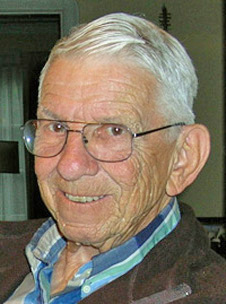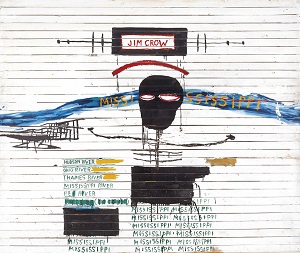
Illinois is a state in the Midwestern United States. The Great Lakes are to its northeast, the Mississippi River to its west, and the Ohio River to its south. Its largest metropolitan areas are Chicago and the Metro East region of Greater St. Louis. Other metropolitan areas include Peoria and Rockford, as well as Springfield, its capital, and Champaign-Urbana, home to the main campus of the state's flagship university. Of the fifty U.S. states, Illinois has the fifth-largest gross domestic product (GDP), the sixth-largest population, and the 25th-largest land area.
Piedmont blues refers primarily to a guitar style, which is characterized by a fingerpicking approach in which a regular, alternating thumb bass string rhythmic pattern supports a syncopated melody using the treble strings generally picked with the fore-finger, occasionally others. The result is comparable in sound to ragtime or stride piano styles. Blues researcher Peter B. Lowry coined the term, giving co-credit to fellow folklorist Bruce Bastin. The Piedmont style is differentiated from other styles, particularly the Mississippi Delta blues, by its ragtime-based rhythms.
Rand McNally is an American technology and publishing company that provides mapping, software and hardware for consumer electronics, commercial transportation and education markets. The company is headquartered in Chicago, with a distribution center in Richmond, Kentucky.

The Citizens' Councils were an associated network of white supremacist, segregationist organizations in the United States, concentrated in the South and created as part of a white backlash against the US Supreme Court's landmark Brown v. Board of Education ruling. The first was formed on July 11, 1954. The name was changed to the Citizens' Councils of America in 1956. With about 60,000 members across the Southern United States, the groups were founded primarily to oppose racial integration of public schools: the logical conclusion of the Brown v. Board of Education ruling.
David Herbert Donald was an American historian, best known for his 1995 biography of Abraham Lincoln. He twice won the Pulitzer Prize for Biography for earlier works; he published more than 30 books on United States political and literary figures and the history of the American South.
Joseph A. McCartin is a professor of history at Georgetown University whose research focuses on labor unions in the United States. He also serves as the executive director of the Kalmanovitz Initiative for Labor and the Working Poor.

Sophia Hayden was an American architect and first female graduate of the four-year program in architecture at Massachusetts Institute of Technology.

Lawrence F. McCaffery Jr. is an American literary critic, editor, and retired professor of English and comparative literature at San Diego State University. His work and teaching focuses on postmodern literature, contemporary fiction, and Bruce Springsteen. He also played a role in helping to establish science fiction as a major literary genre.

The Vincennes Trace was a major trackway running through what are now the American states of Kentucky, Indiana, and Illinois. Originally formed by millions of migrating bison, the Trace crossed the Ohio River near the Falls of the Ohio and continued northwest to the Wabash River, near present-day Vincennes, before it crossed to what became known as Illinois. This buffalo migration route, often 12 to 20 feet wide in places, was well known and used by American Indians. Later European traders and American settlers learned of it, and many used it as an early land route to travel west into Indiana and Illinois. It is considered the most important of the traces to the Illinois country.
Gordon A. Weaver was an American novelist and short story writer.

Charles F. Fanning, Jr. is an Irish American historian and academic.
Louis Rudolph Harlan was an American academic historian who wrote a two-volume biography of the African-American educator and social leader Booker T. Washington and edited several volumes of Washington materials. He won the Bancroft Prize in 1973 and 1984, once for each volume, and the 1984 Pulitzer Prize for Biography or Autobiography for the second volume.

Charles Grier Sellers Jr. was an American historian. Sellers was best known for his book The Market Revolution: Jacksonian America, 1815–1846, which offered a new interpretation of the economic, social, and political events taking place during the United States' Market Revolution.
The following is a bibliography on American Communism, listing some of the most important works on the topic.
Kenneth W. Noe is an American historian whose primary interests are the American Civil War, Appalachia and the American South. He has most recently published The Howling Storm: Weather, Climate, and the American Civil War.
Formal education in Mississippi began in the early 19th century with private schools and academies, a public education system was founded during the Reconstruction era, by the biracial legislature led by the Republican Party. Throughout its history, Mississippi has produced notable education inequalities due to racial segregation and underfunding of black schools, as well as rural zoning and lack of commitment to funding education.
Folletts is an unincorporated community in Clinton County, Iowa, United States. It is located at the intersections of 292nd Street and County Highway Z36 on the north bank of the Wapsipinicon River. It is one mile west of Shaffton and three miles east of McCausland, at 41.750099N, -90.354990W.
The 1970 Mississippi State Bulldogs football team represented Mississippi State University during the 1970 NCAA University Division football season. The Bulldogs finished 6–5 for the only winning season in head coach Charles Shira's tenure. The 1970 squad included the first two African-American football players on the Bulldogs' varsity team, defensive back Frank Dowsing and defensive tackle Robert Bell.

Jim Crow is a painting created by American artist Jean-Michel Basquiat in 1986. In October 2017, the anti-segregation painting sold for $17.7 million at Christie's Post-War & Contemporary art auction in Paris, becoming the most expensive artwork by Basquiat sold in France.
Donald R. Hickey is an American academic who is professor of history at Wayne State College, author and lecturer on early American history, mostly involving the War of 1812. He has been with Wayne State since 1978 while simultaneously acting as visiting professor at the Army Staff College (1991–1992), the Naval War College (1995–1996), and The Citadel (2013). Hickey has written many articles for numerous historical journals and magazines, and has served on the editorial and advisory boards of several. During his academic career, Hickey has earned a number of awards for his scholarship and literary efforts.







